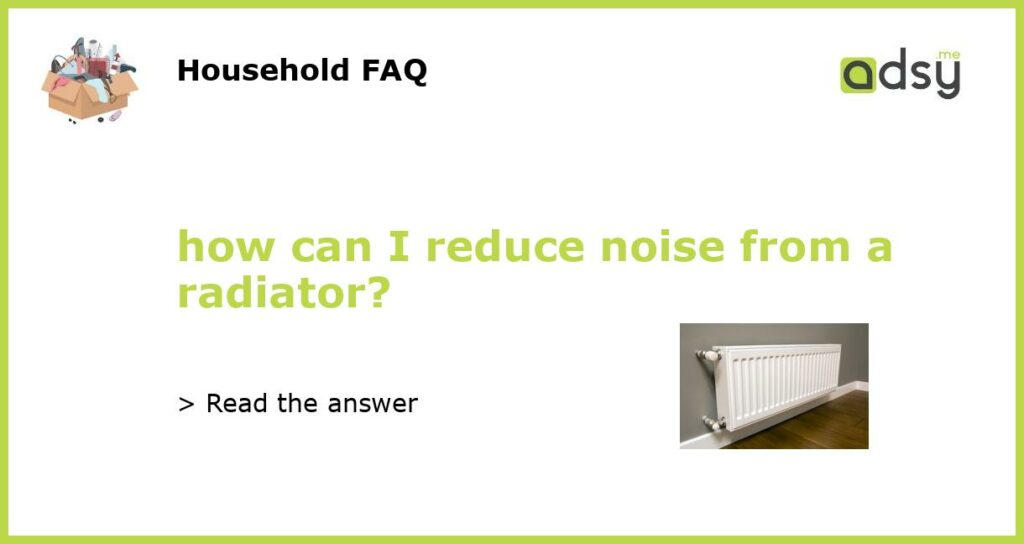Understanding the Common Causes of Radiator Noise
Radiators are designed to heat your home efficiently and effectively. However, as they are mechanical systems, they can sometimes produce noise that can be irritating or disruptive. Before attempting to reduce or eliminate the noise, it is important to understand the common causes.
One common cause of radiator noise is trapped air within the system. When air becomes trapped, it can create a variety of sounds, including gurgling, hissing, or knocking. Another cause can be the expansion and contraction of the pipes and radiators as the system heats up and cools down. This can result in creaking or popping noises. Finally, loose or faulty valves, brackets, or fittings can also be a source of noise.
Simple DIY Solutions to Reduce Radiator Noise
If you are looking to reduce or eliminate noise from your radiator, there are some simple DIY solutions you can try. Bleeding the radiator is the first step in addressing noise caused by trapped air. To do this, locate the bleed valve, typically found at the top of the radiator, and use a radiator key or flathead screwdriver to open it slightly. Be sure to have a towel or container ready to catch any water that may escape. Allow air to escape until water begins to flow consistently, then close the valve.
Another common DIY solution is to secure loose valves, brackets, or fittings. Use a wrench or pliers to tighten any loose connections. If you notice any damaged or faulty components, you may need to replace them. This can include valves, brackets, or even the radiator itself if it is old or worn.
Professional Services to Address Radiator Noise
If the DIY solutions do not adequately reduce or eliminate the noise from your radiator, it may be time to consider professional services. A qualified plumber or heating engineer can assess the system and identify any underlying issues causing the noise. They can also perform more advanced repairs or replacements that may be necessary.
Additionally, some companies specialize in radiator noise reduction services. These professionals use specialized products and techniques to quiet noisy radiators. This can include the installation of soundproofing materials or the use of vibration-absorbing devices.
Regular Maintenance to Prevent Radiator Noise
To prevent radiator noise in the first place, regular maintenance is key. This includes bleeding the radiators annually to remove trapped air. It is also important to check and tighten any loose valves, brackets, or fittings as needed. If you notice any signs of damage or wear, it is best to address them promptly to prevent further issues and potential noise.
Additionally, keeping the system clean and free of debris can help prevent noise. Regularly check and clean the fins and grilles of the radiators to ensure optimal airflow. If your system uses a circulating pump, make sure it is functioning properly and well-maintained. A qualified professional can assist with any maintenance tasks that you are not comfortable or experienced with.
Consider Upgrading to a Quieter Heating System
If you have tried the above solutions and are still experiencing significant radiator noise, it may be worth considering upgrading to a quieter heating system. Newer models of radiators and heating systems are designed to be more efficient and quieter than older ones. Consult with a heating professional to explore your options and determine if an upgrade is the best solution for your needs.






